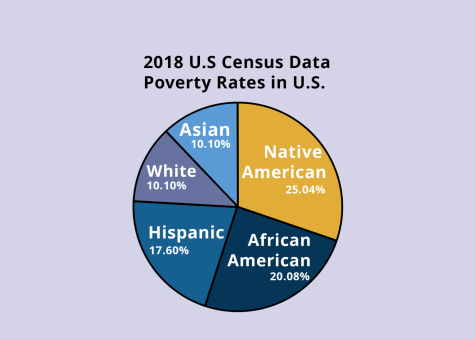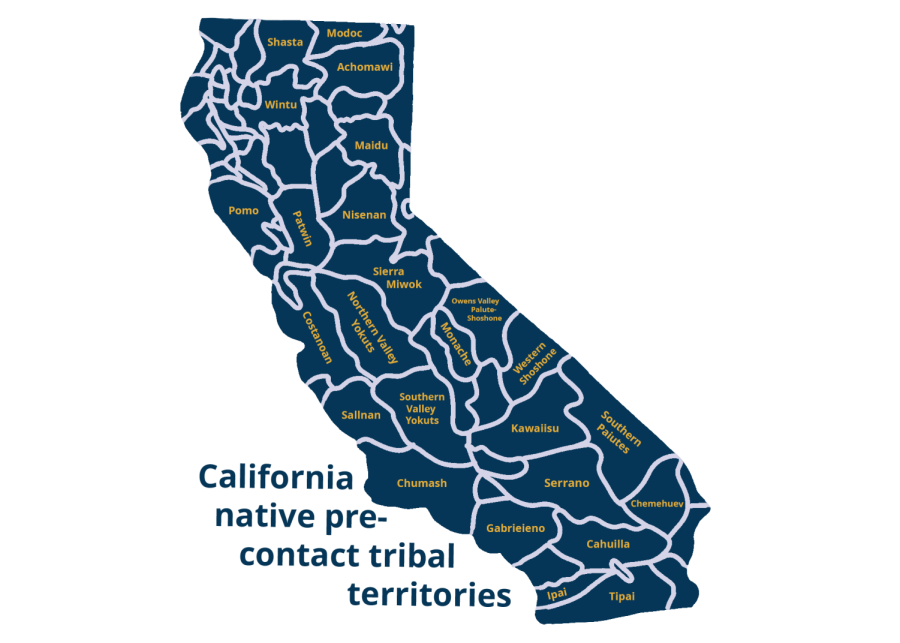The importance of land acknowledgement for Lynbrook
A map of all pre-contact tribal territorial lands in California.
November 7, 2022
Many Bay Area residents are ignorant about what Indigenous tribes lived on their lands before them and difficulties they have faced until now. One such tribe Lynbrook should acknowledge is the Ohlone tribe and their past legacy and struggles in the Bay Area, by adding a land acknowledgment section on its website and introducing cultures and traditions of the Ohlone tribe in morning announcements and newsletters.
Lynbrook should acknowledge the Ohlone because the community has benefitted from initially Ohlone-occupied land since its establishment. Indigenous land was given away to states at low prices to fund the building of universities and educational institutions through the Morrill Act of 1862, and many Natives were forced to leave their homelands in order to make room.
“From Native Americans’ perspectives, Westward Expansion was a time of persecution,” history teacher Mike Williams said. “It was a planned brutal, violent and often deadly removal from their traditional lands and forced placement in reservations. Additionally, free expression of their culture, religion and language was denied.”
To this day, economic effects of European colonization and American Westward expansion can still be seen in tribes’ struggles with lack of health care, displacement, housing, employment, and intergenerational poverty.
As the disparities and disadvantages caused by the displacement of the Ohlone tribe continue today, it is immoral to use land without acknowledging who occupied it before. Consequently, Lynbrook has a moral obligation to recognize that San Jose was traditional territory of the Ohlone tribe, and this can begin by Lynbrook issuing land acknowledgement on its website. This would show Lynbrook’s gratitude toward the Ohlone and would be a powerful first step to address past wrongdoings.
“Land acknowledgement is a thoughtful acknowledgement of people that have been slighted throughout history,” English teacher Terri Fill said. 
Additionally, informing students, parents or visitors of the Lynbrook homepage about the Ohlone would bring attention to what actions can be taken to address social inequalities the tribe has endured, such as housing and healthcare. This could help Lynbrook form a solid foundation for its support toward the indigenous community.
Lynbrook can go further and take lead in supporting the Native American community by introducing Native American history and culture during advisories or morning announcements. Sept. 23 is Native American Day, and November is National American Heritage Month. Providing an opportunity to explore and celebrate the tradition of the Ohlone tribe on those dates will help non-indigenous students to become familiar with Native American culture. With this knowledge, students can better understand the difficulties the Ohlone have faced and support initiatives to recognize them.
“Lynbrook students should acknowledge and be educated about Native Americans’ traditions and their contributions to the Bay Area that we can still see today,” Spanish teacher Michael Esquievel said.
In its mission statement, FUHSD claims to be committed to equity and excellence. Thus, FUHSD’s mission statement suggests the importance and necessity of supporting Native American and Ohlone tribe communities. Starting off with land acknowledgement, FUHSD and Lynbrook can take important steps toward boosting students’ awareness of and respect for the Ohlone tribe and their traditional territories.



































































